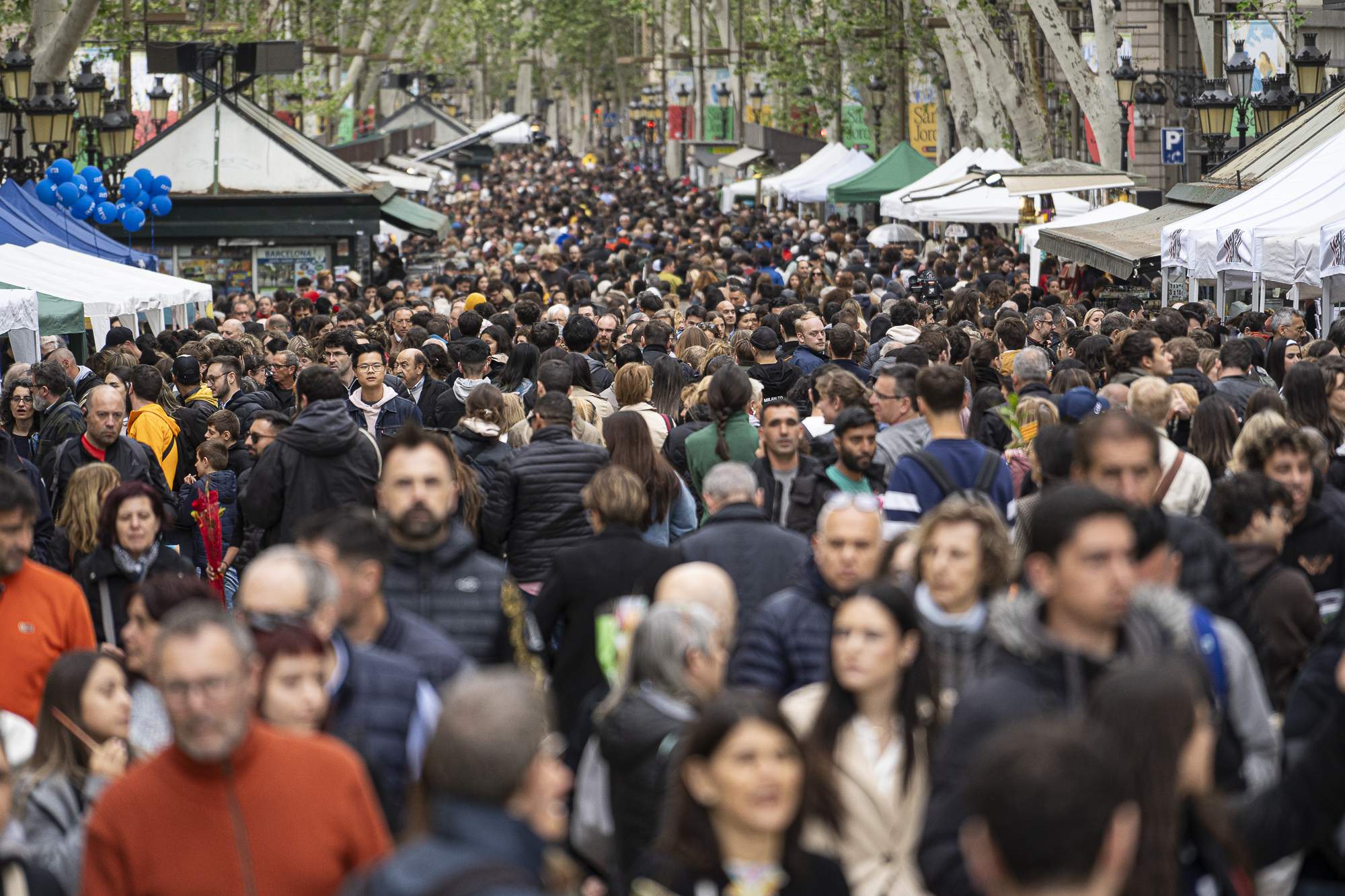The Catalan language, the preferred language of little more than a third of residents of the Catalan capital, and showing a downward trend in many social uses. That is the harsh linguistic reality that has been put on the table this Thursday as the Barcelona City Council met to create a study commission to promote the presence of Catalan in the digital environment and new technological formats. As the beginning of the session, a report was presented compiling data that shows the decrease in the social use of Catalan in Barcelona city, mainly among young people, since it is currently the usual language of 36% of Barcelonans. Only one of the ten city districts, that of Gràcia, has a majority of Catalan speakers.
The report, presented by deputy mayor Maria Eugènia Gay, brings together data from several earlier studies and surveys. Thus, according to the Municipal Services Survey of 2023, Catalan is the usual language of 36.5% of the population, Spanish is the usual language of 55.9%, while 7.4% most frequently use a language other than Catalan or Spanish. According to the 2022 Catalan youth survey, 48% of young Catalans regard Spanish as their first language, 32% have Catalan as their first language, 14% have another language as their first language, with 5.4% combining both Spanish and Catalan.
Only in Gràcia is Catalan the most spoken
Looking at the variations across the city, the report shows that Gràcia is the only district in Barcelona where the usual language is Catalan, with 52.9% of residents using it as their main language. From here, the figure goes down: 45.4% in Les Corts; 44.2% in Sarrià-Sant Gervasi; 43.8% in Eixample; 38.1% in Horta-Guinardó; 37.3% in Sant Andreu; 36.1% in Sants-Montjuïc, 23.2% in Sant Martí; 19.5% in Ciutat Vella and, finally, 17.7% in Nou Barris. In addition, according to the Survey of Language Use of the Population of Catalonia, from 2008 to 2018, Catalan fell from being the first language of 397,000 Barcelona residents to being the first language of 373,000. Spanish rose from 783,000 to 788,000, while other languages went from 141,000 to 176,000 speakers. The combination of Catalan and Spanish went from 74,000 to 46,000.
Even worse, in all age groups, more than half of the people have no interest in learning the Catalan language or in improving it, which implies a decline in the language in certain contexts that can affect in culture and society. The data also shows that in the youngest age group (15 to 29 years), this lack of interest is the case for the majority - 52.1% (although the apathy towards Catalan is higher than that among people over 65, with 71.8%). Regarding the language used to interact on websites and blogs, according to Idescat, Catalan was always or almost always used by 27.6% of the population in 2017 and held solid at 27.8% in 2021. Catalan was used "sometimes" by 25.5% of Catalans in 2017 and 36% in 2021. On the other hand, regular use in chats and forums went from 24% to 16.7% from 2017 to 2021. On social media, as well, the use of Catalan decreased from 31% to 24% in four years. In mobile messaging apps, regular use of Catalan is higher, reaching 40%, but has decreased compared to 47% in 2017. Sporadic use of Catalan has increased from 19 to 33%.
Objectives of new language commission
According to ACN, the new non-permanent city council commission will analyze the current state of Catalan in the digital sphere and its use by young people. The aim is to develop a municipal strategy to reverse the current situation and offer tangible proposals to promote the use of Catalan in digital environments and especially among young people. It will have the participation of specialists from different sectors to provide it with expertise. Topics to be discussed will include the diagnosis of the situation of Catalan among young people in digital environments, new audiovisual formats and their use in Catalan, video games and content creators, successful projects in Catalan-speaking territories and other countries and the role of the public media in the promotion of Catalan.
The five sessions of this commission which will be held until November will be open to the public and the commission will summon experts and key individuals for the study, such as Rosa Romà, director of the Catalan Audiovisual Corporation; Genís Roca, president of the PuntCat Foundation; Alba Riera, creator of content for social networks; Arnau Rius, founder of Canal Malaya; Albert Lloreta, audiovisual producer and founder of the Bonobo Films cooperative, and Àlex Hinojo, first resident Wikipedian in Catalonia and cultural manager.
In the constitutive session, the municipal government led by the Socialists (PSC), along with Junts, the Comuns and ERC took a position in favour of promoting Catalan in the digital and youth sphere, while the PP and Vox were not against the policy, but blamed the decline in use on the language policies of the Catalan government in recent decades.

